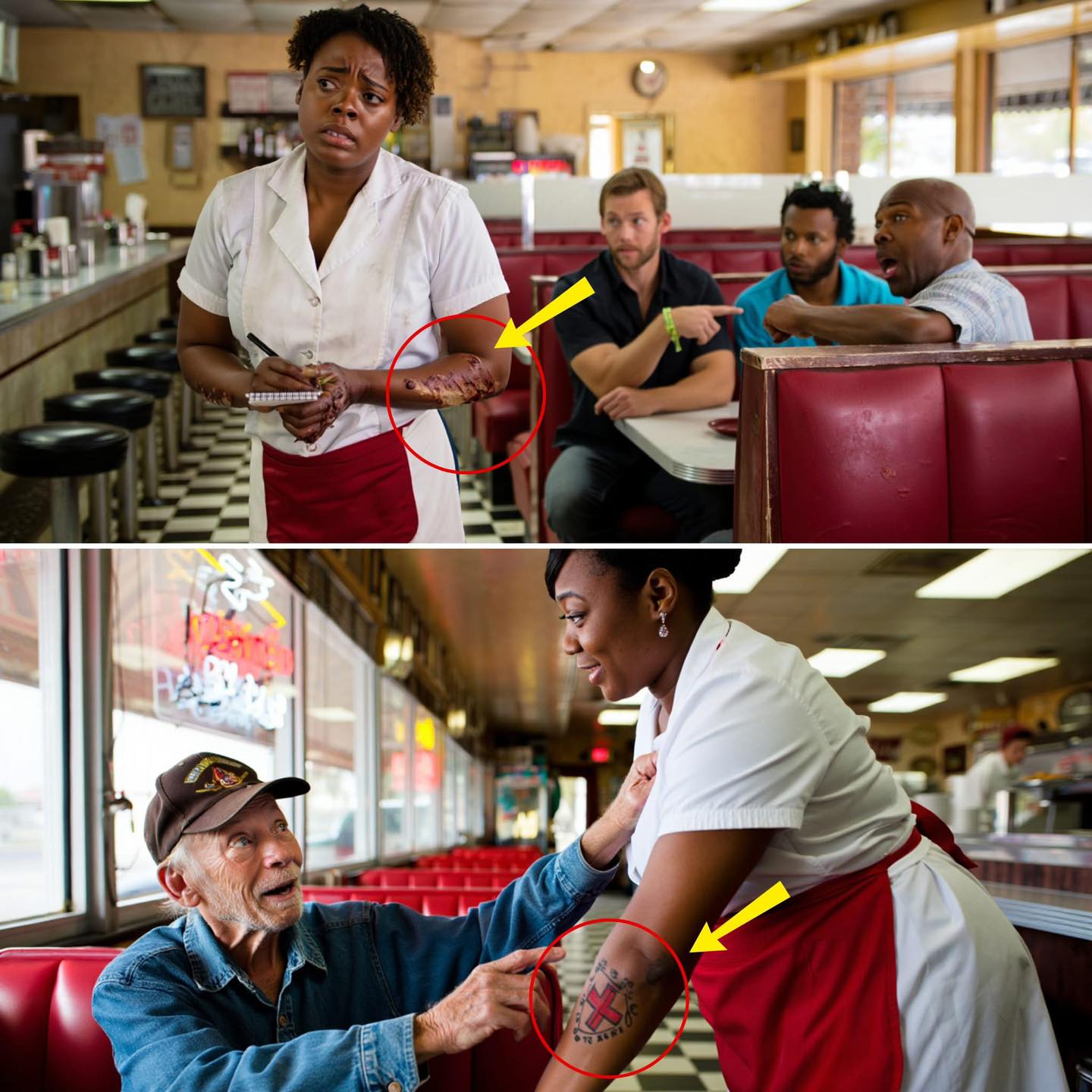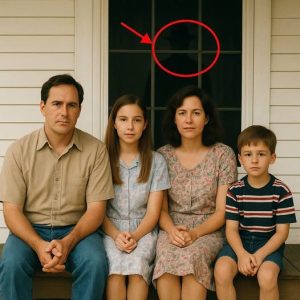They Laughed at the Waitress’s Scars — Until a Veteran Saw the Mark Only Combat Medics Wear
The Dusty Spur Diner sat off a long stretch of Texas highway, where the air shimmered with heat and the neon sign flickered like it was too tired to keep shining. The place smelled of coffee, fried bacon, and stories nobody told anymore.
It was lunchtime when Sergeant Daniel Briggs, U.S. Army (Ret.), walked in. His limp was old — Afghanistan, 2010 — but the ache never left. He’d stopped at the diner only because his truck’s AC had died thirty miles back.
A waitress approached with a menu and a tired smile. She was tall, late thirties maybe, dark-skinned, with faded scars tracing the inside of her arms. Her name tag read “Lena.”
“What can I get you, hon?” she asked softly.
“Coffee. Black,” Briggs said. “And maybe a piece of that pecan pie.”
She nodded, scribbling on her pad. “You got it.”
As she walked away, Briggs caught snippets of laughter from a nearby booth — four men in dusty work shirts, their voices carrying that lazy cruelty of people who’d never been tested.
“Hey sweetheart,” one of them drawled loud enough for half the diner to hear. “What happened to your arms? Lose a fight with a cactus?”
The others snorted.
Lena froze for half a second, then smiled politely — that small, practiced smile of someone used to ugliness. “Just some old burns,” she said. “Can I get you anything else?”
“Nah,” the man said, grinning. “Just wondering if the cook’s gonna wear gloves. Don’t want none of your germs in my burger.”
The laughter came again.
Briggs felt something twist in his gut. He’d seen that look before — in villages overseas, when soldiers mocked locals they didn’t understand. He’d hated it then, too.
Lena dropped their check and moved toward the counter, her head down.
When she set his coffee in front of him, Briggs noticed it — the tattoo on her forearm, half-hidden beneath the scars. A pair of angel wings wrapped around a red cross, with small block letters beneath it: “68W — MARJAH.”
Briggs froze.
That code wasn’t just military — it was personal. 68W was the MOS for Army combat medics. And Marjah… he knew that name like a wound.
He looked up. “Ma’am,” he said carefully. “You serve?”

Lena blinked, surprised — people rarely asked that question, and almost never with that tone.
She hesitated, then nodded. “Yeah. 2010. 1st Battalion, 6th Marines. Marjah.”
Briggs’s throat tightened. “Same year,” he said quietly. “2nd Infantry. We were pinned down near Route 605 — medevac chopper got hit on the way out.”
Her eyes flickered — recognition, pain, and something deeper. “You were there?”
He nodded. “Yeah. One of your medics patched me up after that blast. Saved my leg. I… never caught her name.”
Lena swallowed hard. “That was me,” she whispered.
The diner seemed to go still.
Briggs stared, not at the scars, but at the quiet strength in her eyes. “I remember your voice,” he said. “You kept yelling at me to stay awake. Said if I passed out, you’d drag me back yourself.”
A small, stunned laugh escaped her. “You were the stubborn one who refused morphine.”
He smiled faintly. “Didn’t want to miss the view.”
The men at the next table had gone silent now, their smirks fading into awkwardness. One of them muttered, “You were in the war?”
Lena looked at them calmly. “Yeah,” she said. “Those scars you laughed at? They’re from pulling wounded guys out of a burning Humvee.”
Briggs turned toward them, his voice low and cold. “That ‘waitress’ has more courage than the four of you combined. When you sleep tonight, remember there are people like her who bled so you could run your mouths in peace.”
Nobody spoke.
Lena stood there, eyes wet but unbroken. Then Briggs reached into his wallet and placed a hundred-dollar bill under his coffee cup. “For the medic who never stopped fighting,” he said. “And for the pie — it’s the least I can do.”
She smiled, trembling just a little. “Thank you, Sergeant.”
As he left, the bell above the door jingled softly. The men in the booth stared at their plates, shame thick in the air.
Behind the counter, Lena wiped her eyes, took a shaky breath, and whispered — to herself, to the ghosts, maybe to him:
“Still standing. Still serving.”
And the neon sign outside, tired as it was, flickered once — and for a moment, it shone steady.





